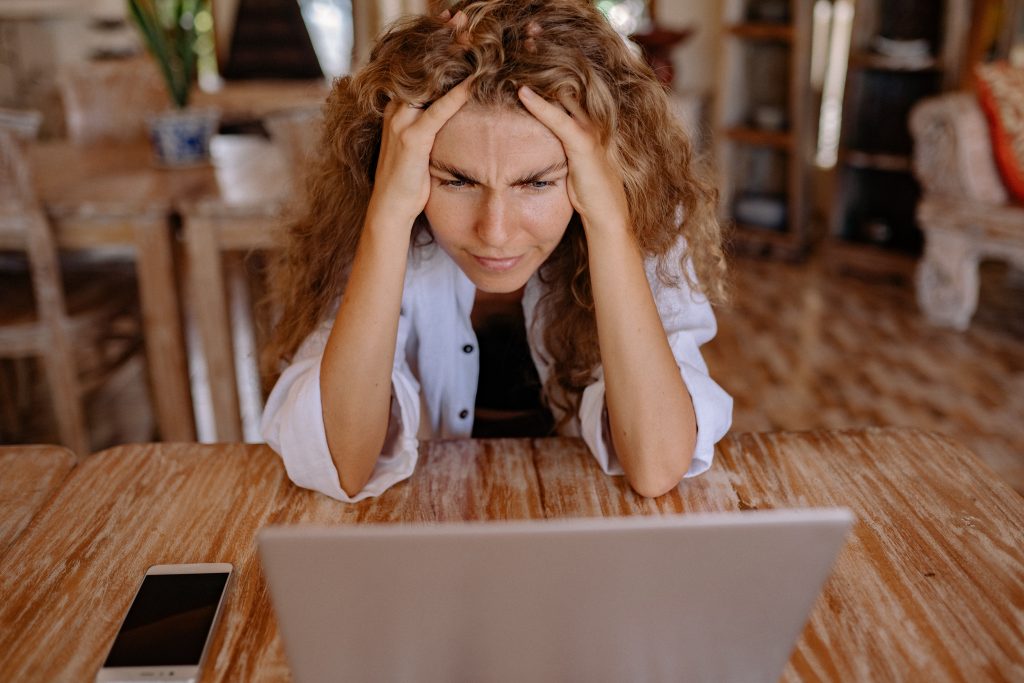Digital Wellbeing: The Low-Down in Lockdown

Our lives have become increasingly immersed in digital technologies; changing how we learn, work, socialise, and even how we spend our leisure time. While this drive to use technology has its benefits it is important to understand the implications of our online life for our digital wellbeing. This is particularly true during this time of lockdown when its impact has never been more acutely felt with more of us working and studying online.
As you might expect, digital wellbeing is often defined in terms of the capabilities and skills required to successfully utilise digital technologies. Though defining digital wellbeing within such neat confines fails to capture the complexities of the topic. It risks understating the impact of digital technologies on our emotions, relationships, and sense of self. Capturing its impact more fully requires us to be introspective; exercising awareness and reflective practice when using digital technologies. It requires us to identify and understand both the positive and negative impacts of engaging with digital activities, fostering an awareness that helps us manage and control these to improve our wellbeing.
A change in circumstances
Over recent weeks, working from home has made me contemplate my own digital wellbeing. Though mindful of it before this crisis, the confinement and reliance on digital technologies necessary to do my job and stay connected have amplified pre-existing issues and brought with it some new challenges. What follows is a personal account, though I hope you may find aspects of it beneficial and applicable to your own experiences of working and studying from home.
The procrastination station/spiral
Mark Twain advised “Never put off till tomorrow what may be done the day after tomorrow just as well” and I am all too inclined to listen.
I am no stranger to procrastination; I procrastinated this very blog post. In the absence of the structured environments provided by a workplace, lecture theatre, or library; places you associate with work and study, it is easy to fall into the pattern of avoidance. As digital technologies have made aspects of our lives easier, so too do they often facilitate our delaying tactics with ease.
With the shift online, it is tempting when feeling unengaged with a task to switch to a new browser window with the good intentions of carrying out a quick search and ending up on YouTube for longer than you’d care to admit. Before you know it, you’ve descended into a procrastination spiral and that blog post has (remarkably) not written itself.
From experience, by making a few simple changes you can overcome this habit:
- Keep the structure of your day as close to your normal routine as possible.
- Set realistic to-do-lists — time your tasks and try to gauge how much time you actually need to complete them.
- Set achievable micro-goals — part of the reason why we avoid a task is that the task itself seems too daunting. Break it down into smaller manageable chunks, making it less daunting and more attainable.
- In the absence of a definitive deadline — set yourself one. This requires discipline, self-imposed authority is easily corrupted but you will thank yourself for sticking to it.
- Get rid of distractions — turn your phone off and contemplate using blocker apps/ website blockers to aid study and focus.
- Take regular short breaks away from your workspace — these are crucial in helping you to de-stress and recharge.
- Use incentives — it’s important to give yourself incentives, no matter how small. When you achieve your goal, reward yourself. Don’t let these small victories go uncelebrated.
And if all else fails, tell someone about your task or goal. There is no greater motivation than knowing you have to admit to someone else that you are yet to complete it.
Blurred boundaries

Pre-pandemic, when I left the office — work was done for the day. Working from home has brought with it a blurring of boundaries. Work is home. The same is true for students learning from home. I have felt committed to the screen, often beyond my normal working hours and guilty when not at my desk. I have been connected and contactable by digital means beyond the standard 8 hours a day. I have often felt a self-imposed obligation to fit in with others’ flexible working arrangements, even if these conflicted with my own.
This was not a healthy or sustainable approach to working from home and a sure-fire way to induce burnout.
As screen times soar and we use digital devices for work, socialising and leisure, we need to recarve the boundaries for ourselves:
- Every working day must have a cut-off point and if a work-related query arises beyond that cut-off, pick it up tomorrow.
- If possible have a designated device for work. Turn Teams and work email notifications off on your personal devices to allow yourself a necessary break from the working day.
- Prioritise your health and wellbeing above all else. You can’t pour from an empty cup.
Switch off or risk burn out.
Lockdown through a lens
Social media for many has played a crucial role in reducing social isolation during lockdown, increasing feelings of connectedness and boosting morale. Though, it is easy to negatively compare your lockdown experience to that of others. This can feed into pre-existing feelings of frustration, inadequacy, and guilt. It is important to acknowledge that there is no one-size-fits-all approach to managing this unprecedented change. Remember that often we present highly curated versions of ourselves online; a highlight reel and whilst some individuals may be comfortably candid about the struggles that lockdown brings, others may not. As with any online posting, you are viewing a small snapshot of someone’s day and it should be treated as such. Some may adapt to this change better than others, we will all experience good days and bad days, but no matter what your experience of lockdown has been— it remains valid.
Be kind to yourself and adjust your expectations
The phrase “You are not working from home, you are at home, during a crisis, trying to work” has been circulated a lot in recent weeks. This is an important distinction to make — this isn’t a normal time, so our expectations for productivity should not be the same. For me, work has offered a familiar structure and rhythm to daily life during this strange time, but some days are more productive than others. Not everyone is lucky enough to have a home office or even a suitable workspace. For many, juggling full-time responsibilities, family life and the stress of confinement is quite overwhelming. Yet there is immense pressure to be productive.
“Shakespeare wrote King Lear whilst in lockdown due to the plague!” — in case you needed someone dead for over 400 years to make you feel guilty for your lack of productivity!
- Practice some self-compassion and don’t give in to productivity propaganda. These ARE unprecedented times, after all.
- Extend the same compassion to your colleagues and peers. Check-in (but don’t check-up) and make time for supportive conversations. We are all in this together.
- Move away from the internalised idea that time spent doing anything other than professional development and self-improvement is time wasted.
- Give yourself permission to acknowledge that this is difficult. Take the time to do things that aren’t necessarily ‘productive’ but that you enjoy and offer you much-needed escapism.
Work is something you do, not something you are. There is more to life than work… and anyway, Shakespeare didn’t have Netflix.
Pages: 1 2